China condemns US sanctions over 'North Korea funding'
- Published
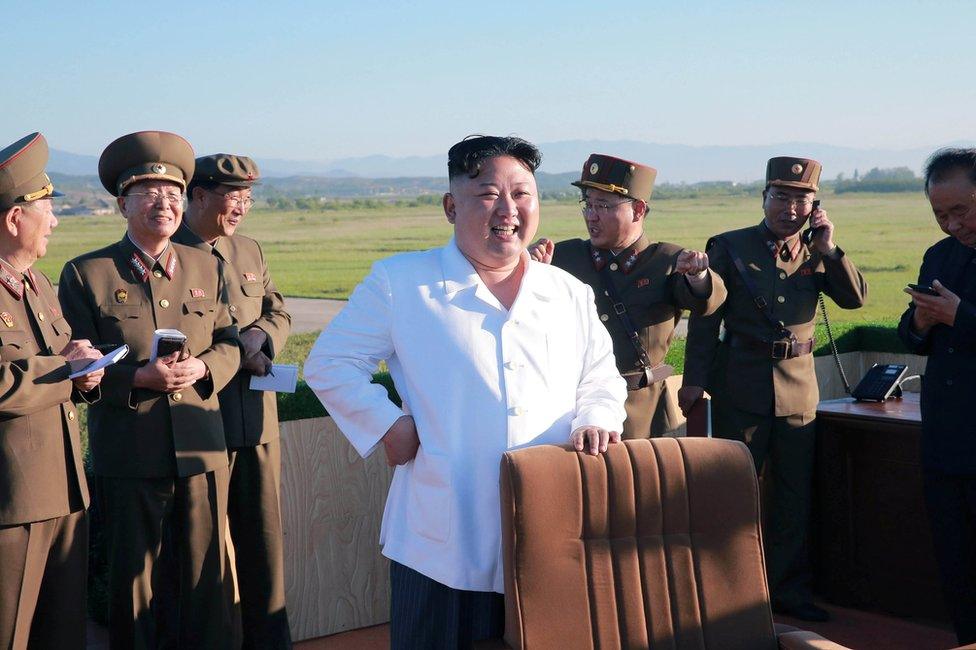
The US says China can do the most to impose economic pain on Kim Jong-un's regime
China has reacted angrily to a US decision to impose sanctions on a Chinese bank accused of laundering North Korean money.
A foreign ministry spokesman urged the US to "stop wrongful actions" to avoid harming co-operation.
The US announced the move, as well as sanctions on a Chinese shipping company and two Chinese nationals, on Thursday.
It said the blacklisting was aimed at cutting funds to North Korea's weapons programmes.
"We will follow the money and cut off the money," Treasury Secretary Steven Mnuchin told a news conference.
But he said the move was not a response to Chinese inaction on North Korea, saying: "This is not directed at China, this is directed at a bank, as well as individuals and entities in China."
The UN has already imposed several rounds of sanctions on Pyongyang, but China is widely seen as the nation most able to impose economic pain on North Korea.
Washington has been pushing Beijing for tougher measures amid a series of missile tests by Pyongyang. But in a tweet earlier this month, President Donald Trump said China's actions had "not worked out".
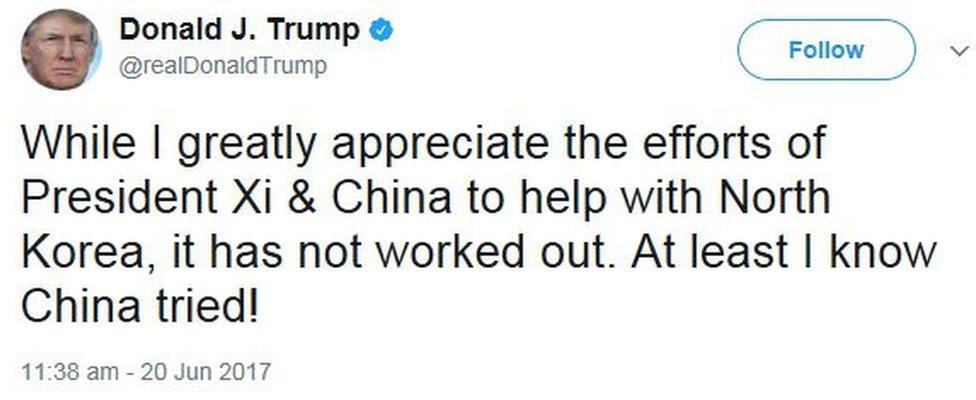
The sanctions mean that the Bank of Dandong will be barred from doing business in the US.
The US Treasury said, external it had been "a conduit for illicit North Korean financial activity" and facilitated "millions of dollars of transactions for companies involved in North Korea's WMD (weapons of mass destruction) and ballistic missile programmes".
Two Chinese nationals accused of creating front companies for North Korean entities have also been blacklisted, as has a shipping company, Dalian Global Unity Shipping, that is accused of smuggling luxury goods to North Korea.
Mr Mnuchin said that the US could impose more sanctions in the future.
The sanctions were announced as new South Korean President Moon Jae-in held talks with President Trump in Washington.
Mr Trump said "many options" were being discussed on the North Korea issue.
"The era of strategic patience with the North Korean regime has failed, many years it has failed. Frankly, that patience is over," he said.
The US leader added that Washington was "working closely with South Korea and Japan, as well as partners around the world, on a range of diplomatic, security and economic measures to protect our allies and our own citizens from this menace known as North Korea".
Meanwhile, Mr Moon said the North Korea issue was a top priority during the talks, stressing that "only strong security can bring about genuine peace" in the Asia-Pacific region.
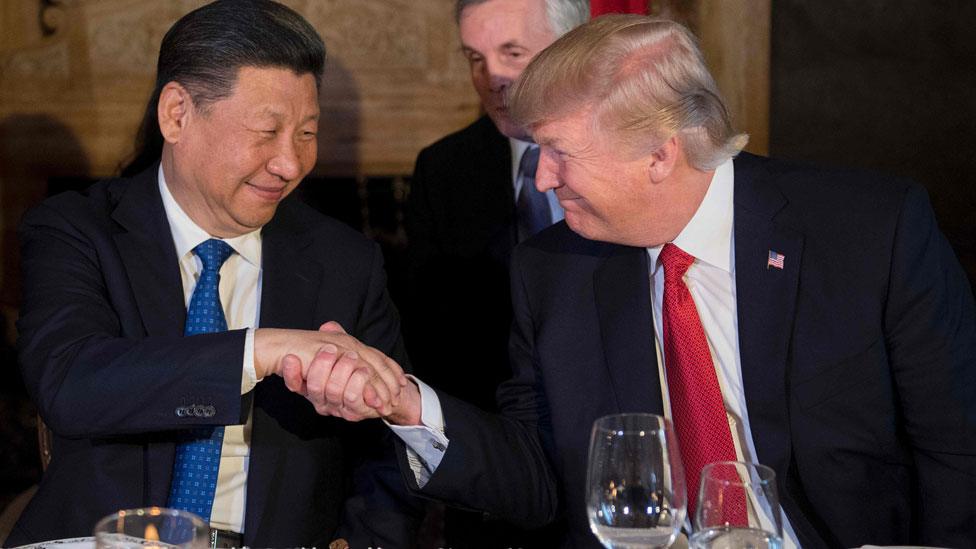
Mr Trump and Mr Xi were all smiles at Mar-a Lago in April
In a separate development, the US announced the sale of $1.42bn (£1.09bn) worth of arms to Taiwan, the first such transaction under the Trump administration.
US arms sales to Taiwan always anger Beijing because it considers the self-governing island part of its territory. In a statement, the Chinese embassy in Washington called on the US to revoke its decision, saying China had "every right to be outraged".
The Chinese foreign ministry spokesman said on Friday that the US actions went "against the important spirit" of the apparently friendly meeting between Mr Trump and Chinese President Xi Jinping at the US president's Florida resort in April.
Earlier in the week, the US also placed China on its list of the worst offenders in human trafficking and forced labour - the first major move by the new administration over Beijing's human rights record.
- Published2 June 2017
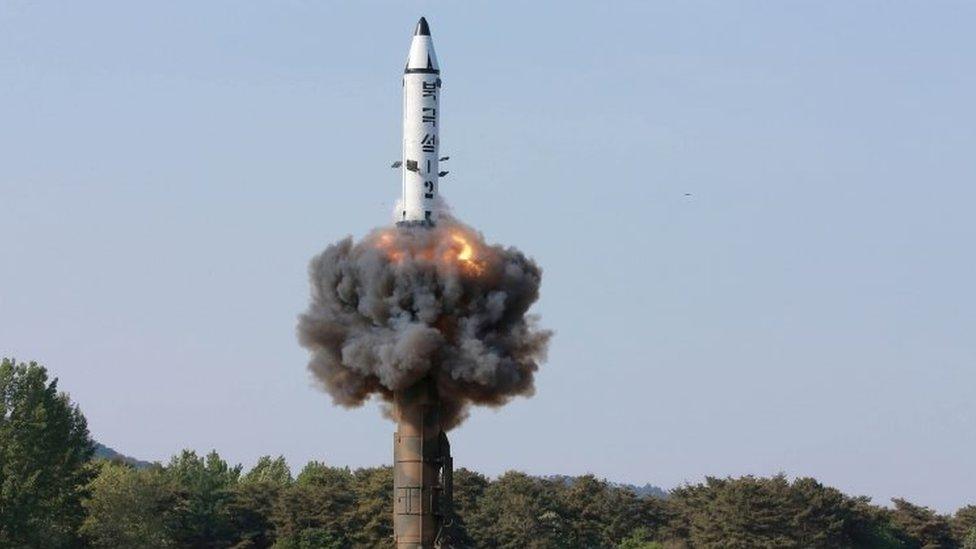
- Published19 April 2017
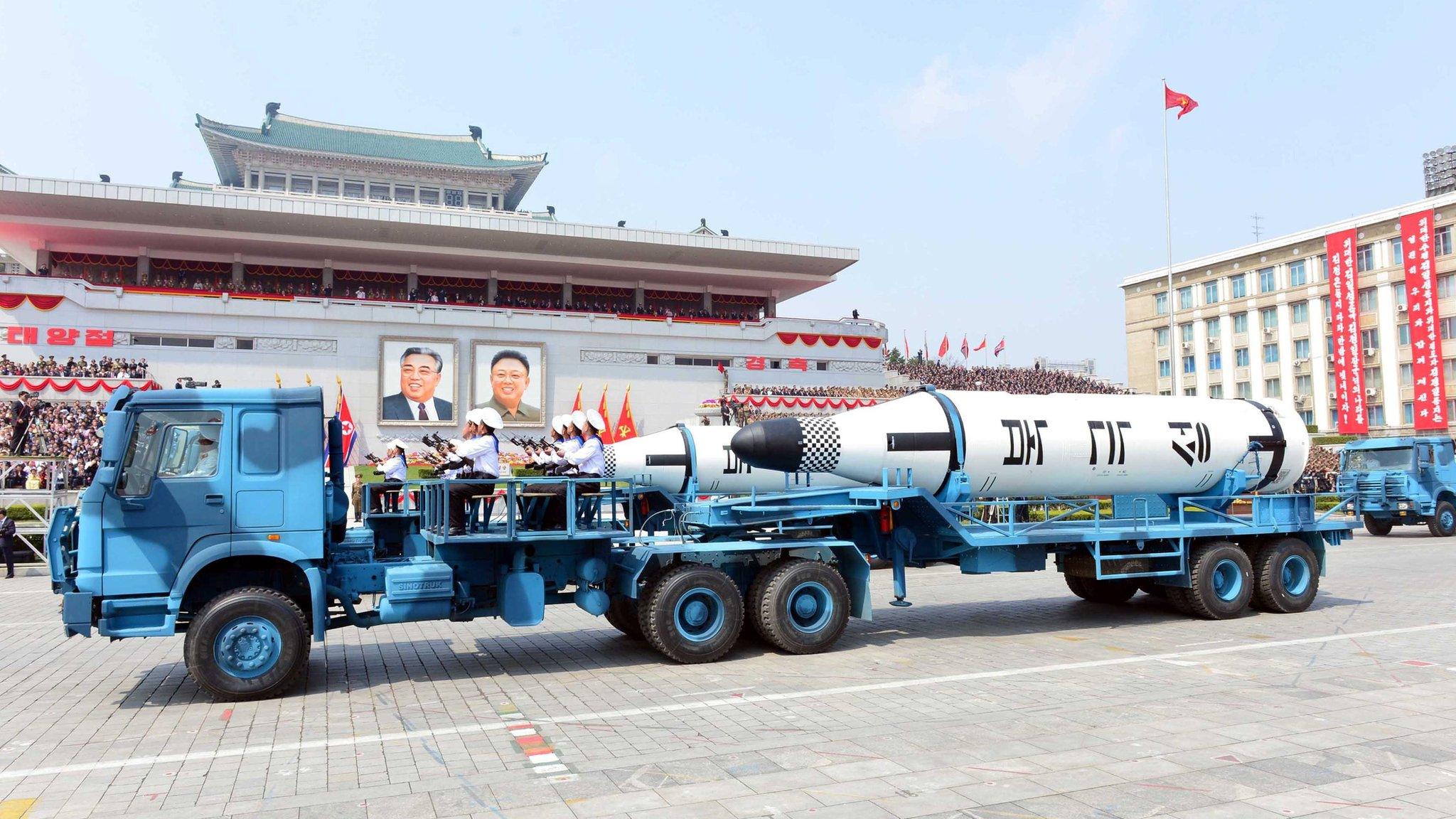
- Published18 April 2017
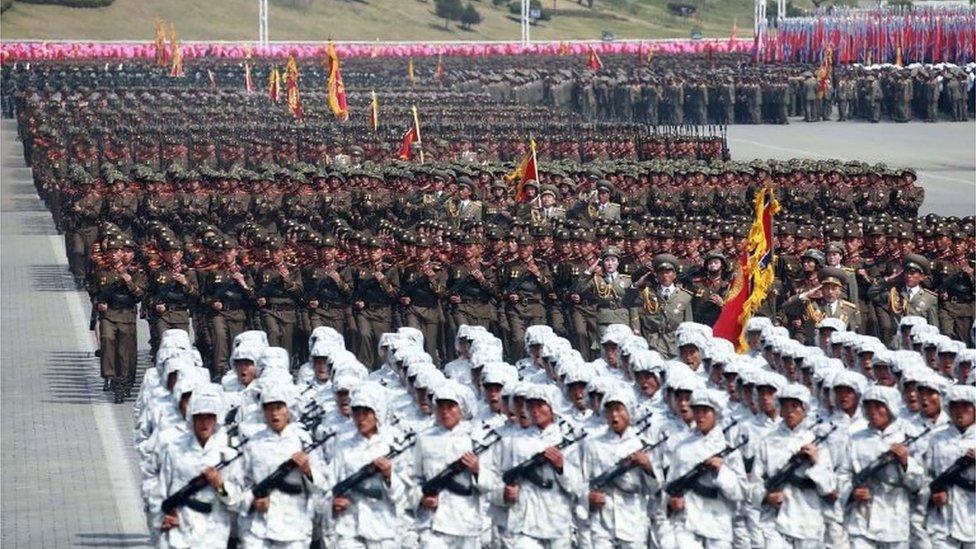
- Published4 July 2017
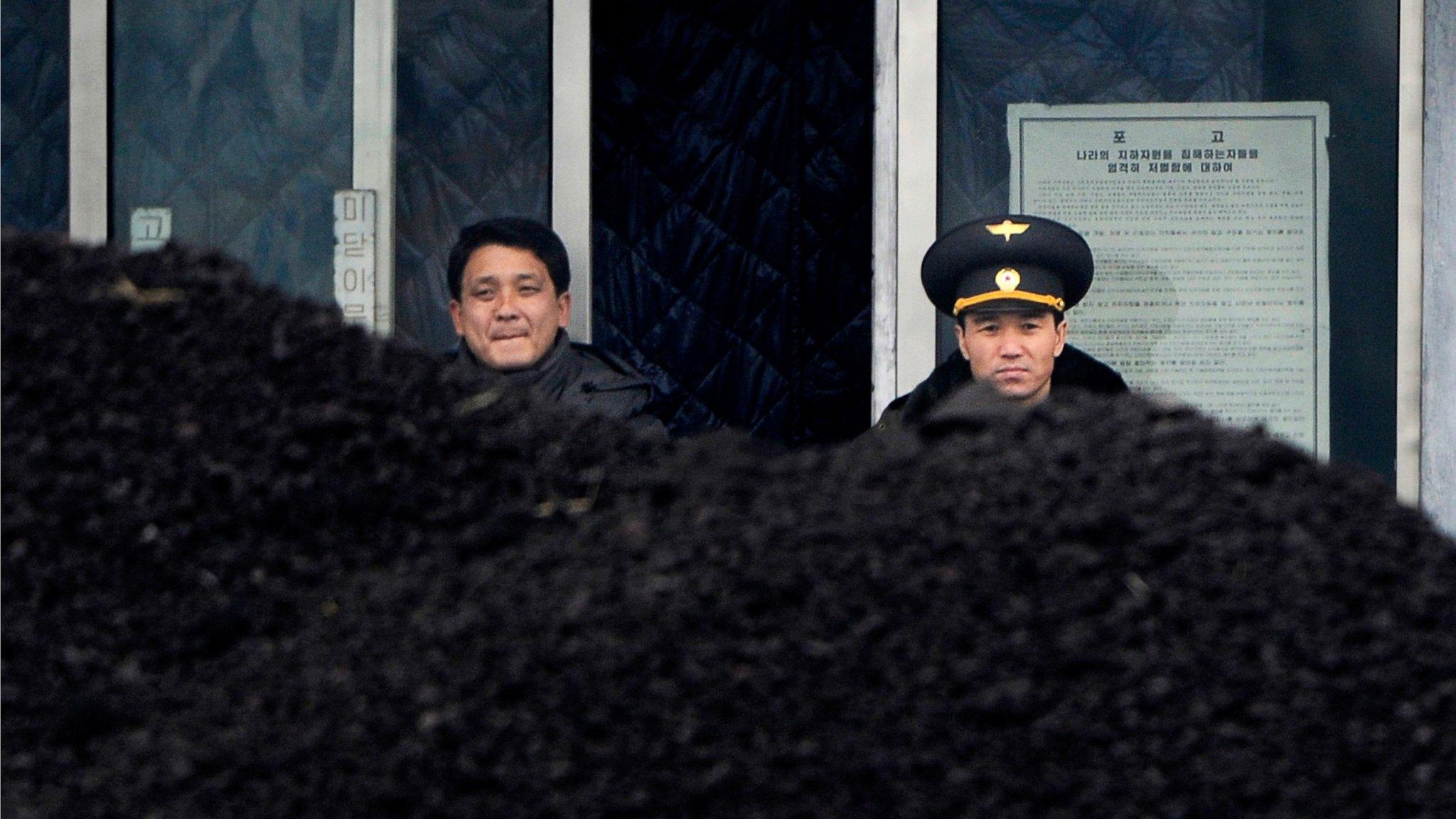
- Published10 August 2017